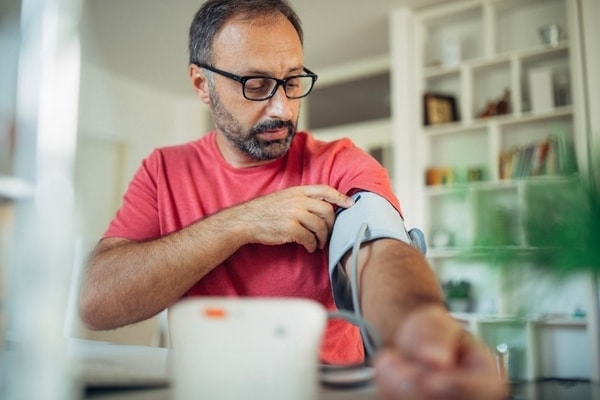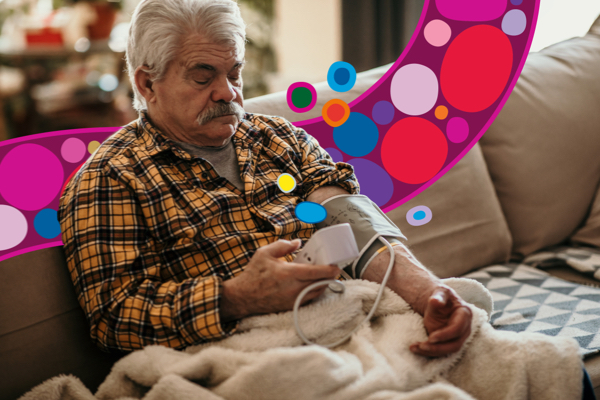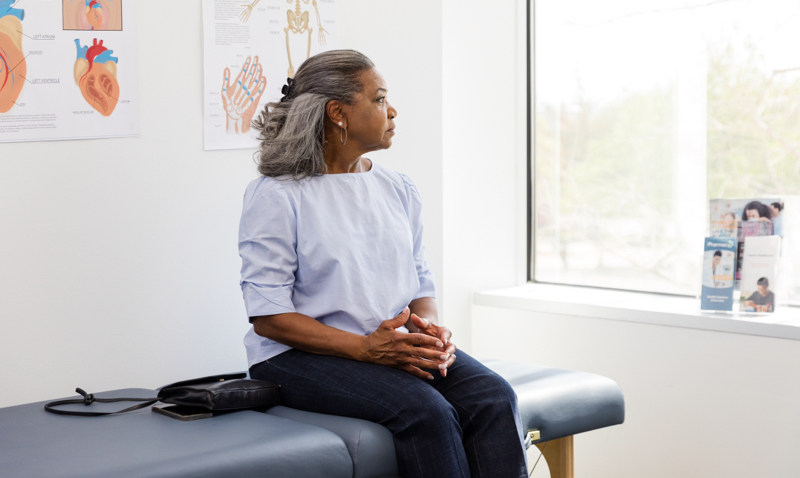Written by Medibank
January 2024
What is a pacemaker?
A pacemaker is a small device that sends electrical signals to the heart to help it pump blood in a steady rhythm, so you maintain a normal heart rate. Your doctor might recommend a pacemaker for you if your heartbeat has become either too fast, too slow or irregular – also known as arrhythmia.
The device is about the size of a matchbox and contains a battery and an electric circuit. It’s inserted under the skin, directly below the collarbone. One or more leads travel from the pacemaker down a vein to the heart to give electrical impulses.

What happens during pacemaker surgery?
Pacemaker surgery is considered a minor procedure. It is performed under local anaesthetic, though you may be given a light sedation, and generally takes between one to 3 hours.
In the procedure:
- the doctor makes an incision below the collarbone
- one or 2 electrical leads are guided through a vein towards the heart, then connected to the pacemaker
- the doctor checks the pacemaker is functioning properly
- the pacemaker is inserted under the skin and the incision is closed.
How to prepare for pacemaker surgery?
While every hospital might have slightly different preparation orders for your surgery, here’s what you can generally expect beforehand:
- If you’re taking medications, you may need to pause some of them before surgery. Let your healthcare professional know which medications you’re taking and follow their plan.
- Arrange for someone to drive you home after the surgery
- Ask your healthcare professional when you need to stop eating and drinking prior to the operation
- One day before your procedure, take a shower using chlorhexidine to make sure your skin is clean.
Recovery after pacemaker surgery
For 2 weeks after pacemaker surgery, you should avoid:
- lifting the elbow on the side of the pacemaker any higher than your shoulder
- lifting anything heavier than 5kg.
For 4–6 weeks after pacemaker surgery, you should avoid moderate-to-vigorous activities using your upper body, such as swimming, golf or tennis.
It’s not uncommon to feel stress or changes in your mood following pacemaker surgery, so it’s a good idea to monitor and take care of your mental health as part of your recovery process. If you’re experiencing mood fluctuations or have any concerns regarding your pacemaker, talk to your healthcare professional.
Shoulder pain after pacemaker surgery
Although it’s inserted close to your shoulder, a pacemaker doesn’t interfere with your shoulder joint. If you’re experiencing shoulder pain, it could be a condition known as “frozen shoulder”.
Frozen shoulder is a condition where the capsule around your shoulder joint becomes inflamed, resulting in pain and stiffness.To minimise your chances of developing frozen shoulder, try to maintain gentle shoulder movement after your surgery. A physiotherapist or occupational therapist can give you tips on relevant exercises that could help.
How soon can you travel after pacemaker surgery?
If there are no complications, you can generally fly 48 hours after surgery. Keep in mind that you should limit your shoulder movement and how much weight you lift for 2 weeks after surgery, so if you’re travelling alone you might have some difficulty with luggage, particularly getting it in and out of overhead compartments.
When you fly, let airport security know you have a pacemaker as it may set off security scanners. You will be given a medical ID card to let people know you have a pacemaker.

24/7 Medibank Nurse Support
Medibank health insurance members can speak to a registered nurse at no extra cost.1 Chat over the phone or online, any time of the day or night.
1 Some referred services may involve out of pocket costs and waiting periods may apply.
Commonly asked questions: pacemaker surgery in Australia
Are there any driving restrictions after pacemaker surgery?
You shouldn’t drive in the first 2 weeks after pacemaker surgery. After this time, you’ll need a conditional licence to drive. To receive a conditional licence, you’ll need a letter from your treating doctor stating that your response to the treatment has been satisfactory and that you have minimal symptoms that could interfere with your driving such as chest pain, palpitations and breathlessness.
What is the usual recovery time after pacemaker surgery?
After a few weeks, many people can get back to their regular activities. It’s also important that you follow any medical advice about changes to your lifestyle or medications.
What do you need to do after pacemaker surgery?
- After pacemaker surgery, you need to attend regular device checks to monitor your heart health, and the pacemaker’s settings and battery life. Most pacemakers last between 5 and 15 years. With regular device checks, your healthcare provider will be able to tell you when your pacemaker’s battery needs to be changed.
- You’ll be given a pacemaker ID card. You should carry it with you at all times. It’s a good idea to also leave a copy or photo of it with a family member.
What are things to avoid after pacemaker surgery?
- Avoid high-contact sports where there might be force or pressure to your chest. If you want to play this kind of sport, talk to your healthcare provider.
- Try to avoid carrying your mobile phone in a pocket close to your pacemaker.
- Most household appliances, like microwaves and hair dryers, don’t affect pacemaker function, but you should avoid electrical devices with a strong magnetic field.
- Avoid bathroom scales that measure body fat, and magnetic jewellery, mattresses, pillows and blankets.

Heart Health at Home
Heart Health at Home is a phone-based cardiac rehabilitation program to help support you from the comfort of your own home, where clinically appropriate.
Read more about managing a heart condition
Looking for something else?
Visit Heart health for more information.
Things you need to know
While we hope you find this information helpful, please note that it is general in nature. It is not health advice, and is not tailored to meet your individual health needs. You should always consult a trusted health professional before making decisions about your health care. While we have prepared the information carefully, we can’t guarantee that it is accurate, complete or up-to-date. And while we may mention goods or services provided by others, we aren’t specifically endorsing them and can’t accept responsibility for them. For these reasons we are unable to accept responsibility for any loss that may be sustained from acting on this information (subject to applicable consumer guarantees).



